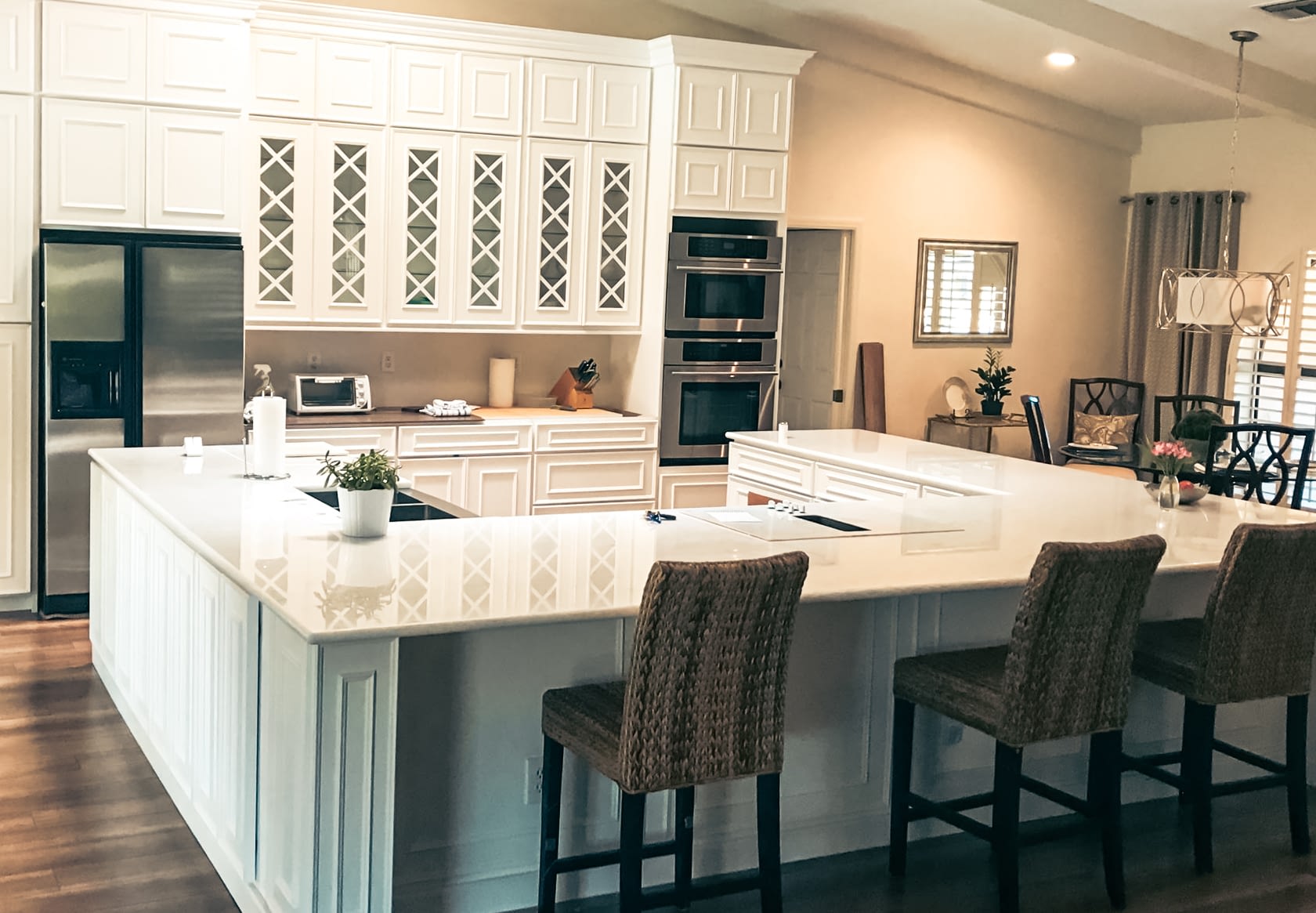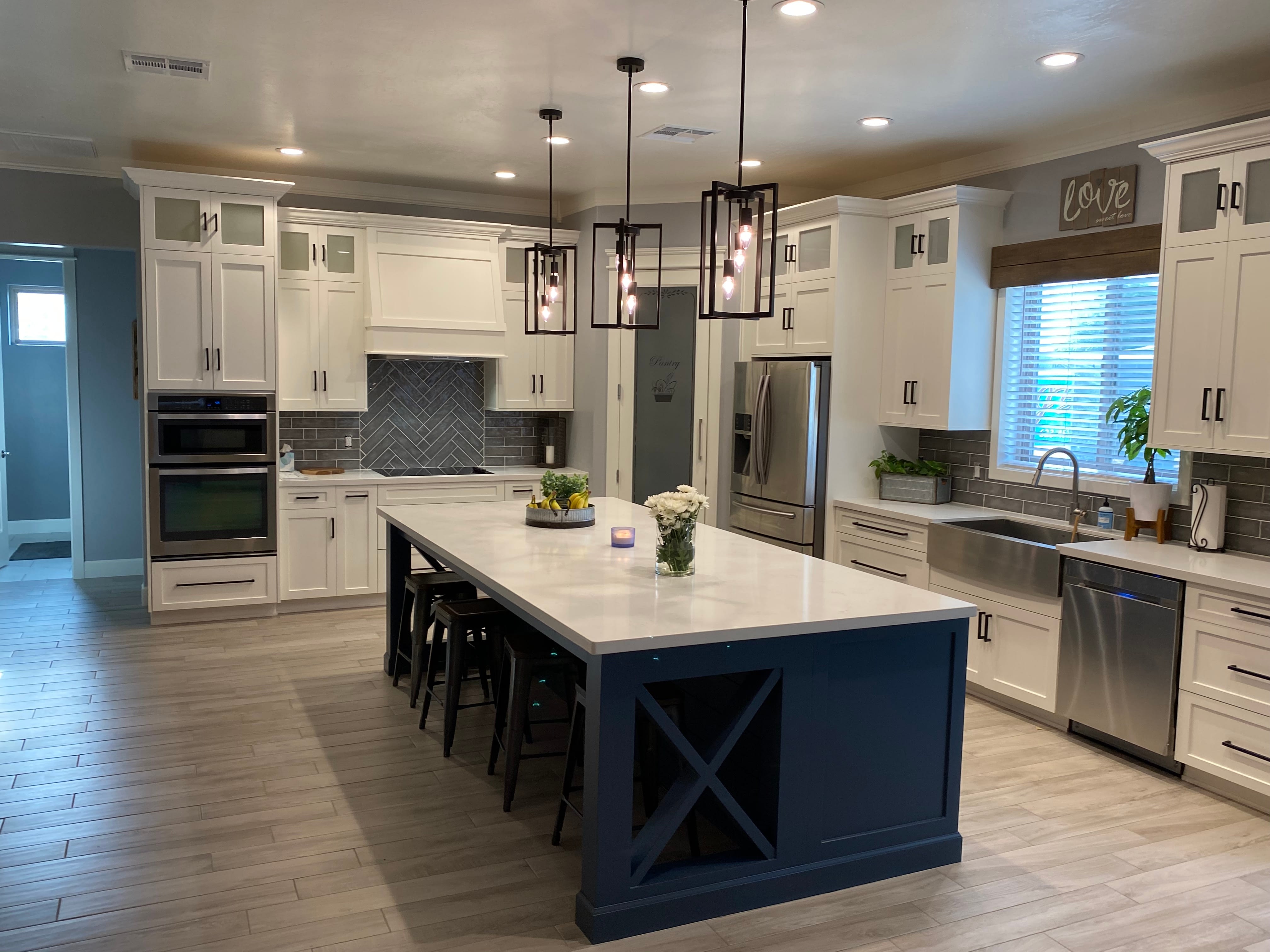Introduction
When it comes to remodeling your home, the choice of flooring in kitchens and baths can make all the difference. Not only does it impact the aesthetic appeal of your space, but it also affects functionality and maintenance. With countless options on the market, how do you know which one is best for your specific needs? In this comprehensive guide, we’ll explore “The Best Flooring Options for Kitchens and Baths by JBS Remodeling,” providing insights into various materials, their benefits, drawbacks, and expert recommendations.
Why Is Flooring Important in Kitchens and Baths?
Choosing the right flooring is crucial in high-moisture areas like kitchens and bathrooms. These spaces are prone to spills, splashes, and heavy foot traffic. Therefore, selecting a durable and water-resistant material becomes essential. But wait—there's more! The right flooring can enhance the overall look of your home while being easy to clean.
Overview of Popular Flooring Materials
While there is a plethora of flooring materials to choose from, some stand out as particularly effective for kitchens and baths. These include:
Tile Vinyl Laminate Hardwood Natural Stone CarpetLet’s dive deeper into each option to understand their strengths and weaknesses.
1. Tile: The Classic Choice for Durability
Why Choose Tile?
Tile flooring has been a classic choice for kitchens and bathrooms due to its durability and water resistance. It’s available in various styles, colors, and patterns that can match any design aesthetic.
Types of Tiles
- Ceramic Tiles: Affordable and versatile. Porcelain Tiles: Denser than ceramic; great for moisture resistance. Glass Tiles: Stunning but may require professional installation.
Pros & Cons
| Pros | Cons | |----------------------------|-----------------------------------------------| | Highly durable | Can be cold underfoot | | Water-resistant | Installation can be complex | | Easy to clean | Grout lines may stain over time |
Maintenance Tips
To maintain tile floors, regular sweeping followed by mopping with a mild detergent will keep them looking fresh.
2. Vinyl: A Budget-Friendly Option
Benefits of Vinyl Flooring
Vinyl has gained popularity due to its affordability and ease http://jaidenbxtc924.timeforchangecounselling.com/finding-inspiration-for-your-home-remodel-with-jbs-remodeling of installation. It mimics other materials effectively while offering exceptional water resistance.
Types of Vinyl Flooring
- Sheet Vinyl: A continuous roll; best for large areas. Vinyl Plank: Mimics hardwood; easy to install. Vinyl Tiles: Individual tiles; customizable layout.
Pros & Cons
| Pros | Cons | |----------------------------|-----------------------------------------------| | Cost-effective | Less durable than tile | | Soft underfoot | Can be damaged by sharp objects | | Wide variety of styles | May fade over time under direct sunlight |
Ideal Use Cases
Vinyl is perfect for homeowners on a budget looking for stylish options without compromising quality.
3. Laminate: Style Meets Affordability
Understanding Laminate Flooring
Laminate floors are designed to mimic wood or stone while being more affordable than genuine materials.
Structure of Laminate
Laminate consists of several layers:
Wear layer Design layer Core layer Backing layerPros & Cons
| Pros | Cons | |----------------------------|-----------------------------------------------| | Easy installation | Susceptible to moisture damage | | Variety in design | Can’t be refinished | | Comfortable underfoot | May produce noise when walked on |
Maintenance Made Easy
Cleaning laminate floors involves sweeping or vacuuming regularly along with occasional damp mopping using a suitable cleaner.
4. Hardwood: Timeless Elegance
Why Opt for Hardwood?
Hardwood offers natural beauty that can elevate any kitchen or bath space but requires careful consideration regarding moisture levels.

Types of Hardwood Floors
- Solid Hardwood: Traditional look but sensitive to humidity. Engineered Hardwood: More stable; better suited for moist areas.
Pros & Cons
| Pros | Cons | |----------------------------|-----------------------------------------------| | Unmatched aesthetic appeal | Expensive | | Long-lasting | Requires regular maintenance | | Can increase home value | Sensitive to scratches |
5. Natural Stone: Unique Luxury
The Allure of Natural Stone
Natural stone offers an unparalleled luxury feel but comes with unique challenges like weight and cost.
Types of Natural Stones
- Marble: Elegant but porous. Granite: Durable yet needs sealing. Slate: Offers natural texture; slip-resistant when honed.
Pros & Cons
| Pros | Cons | |----------------------------|-----------------------------------------------| | Unique appearance | Heavy; may require strong subfloor | | Durable | Needs regular sealing |
6. Carpet: Comfort Over Practicality?
When Is Carpet Suitable?
While not typically recommended for kitchens or baths due to moisture concerns, carpet can still find its place in certain settings—like adjacent living areas or cozy corners near sinks where you might need a soft surface underfoot.
Types of Carpet
Berber Cut pile Loop pilePros & Cons
Pros:
- Softness underfoot Sound absorption
Cons:
- Difficult to clean Prone to stains
Conclusion
Choosing the right flooring can transform your kitchen or bath into functional yet beautiful spaces that reflect your style while standing up against daily wear-and-tear challenges posed by moisture and foot traffic alike! Whether you opt for low-maintenance vinyl tiles or luxurious natural stone, JBS Remodeling has got you covered every step of the way!

FAQs About Kitchen and Bath Flooring Options
Q1: What type of flooring is best for small kitchens? A1: For small kitchens, lighter-colored tiles or vinyl planks create an illusion of space while being functional!
Q2: Are there eco-friendly flooring options? A2: Yes! Bamboo hardwood or recycled tiles offer sustainable choices without sacrificing aesthetics!
Q3: How do I maintain my tile floor? A3: Regular sweeping followed by mopping with mild detergent will keep tile floors looking pristine!
Q4: Can I install vinyl myself? A4: Absolutely! Many vinyl products come with peel-and-stick backing making DIY installation straightforward!
Q5: Is hardwood suitable if I have kids? A5: Yes! With proper finishing techniques including sealing against spills—hardwood remains a viable option even in family homes!
Q6: What’s more durable—laminate or vinyl? A6: Generally speaking—vinyl tends to hold up better against moisture compared to laminate floors!
In conclusion, whether you're looking at tile's rigidity or laminate's versatility—the options are plentiful when it comes down choosing which suits YOUR needs best! Remember—JBS Remodeling is here guiding you through each step creating dream spaces tailored just FOR YOU!